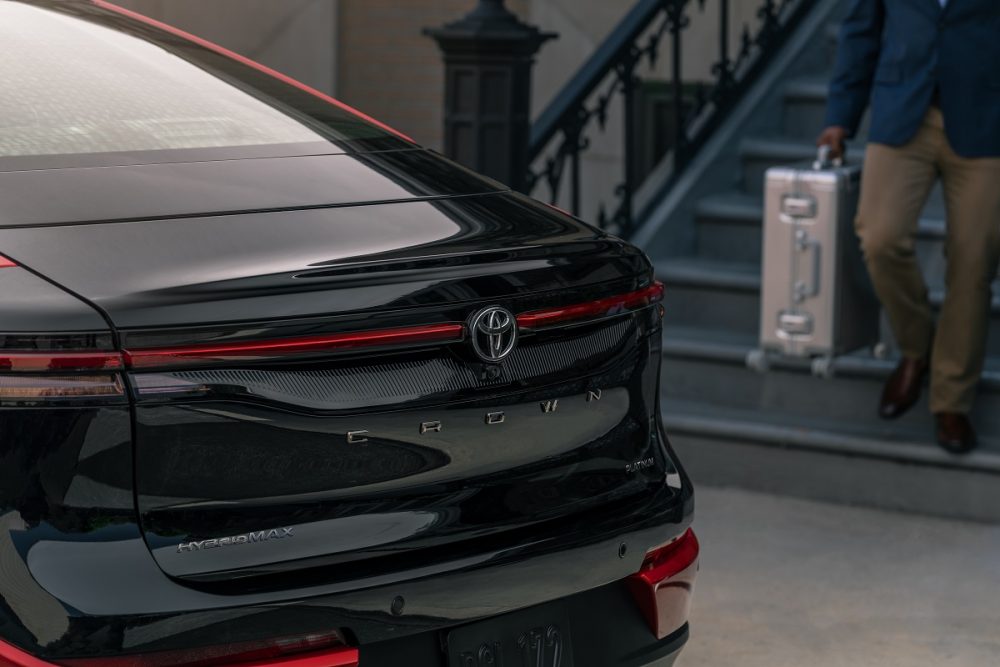
Branding, especially in the United States, is everything. Most people aren’t familiar with the specs, features, and price of any given car by simply looking at it on the street. Often, the top marker of a vehicle’s value is its badge. Consequently, when customers buy an expensive luxury ride and wish to project high wealth and status, they may feel the purchase is undermined if the car bears a mainstream brand logo.
As a result, automakers often sell their premium cars under a different brand, even if they’re made in the same factories and share a tremendous number of parts. The design language is usually altered, but the underlying bones are often the same. In some cases, only the name gets a makeover. For example, Toyota Safety Sense technology simply becomes Lexus Safety Sense, no other modifications required.
Related: Learn more about Toyota Safety Sense
If you’re surprised at this point, you’re not alone. Many people aren’t aware that Toyota and Lexus are one and the same company, and that most of the top automakers in the U.S. employ this strategy. In fact, it is becoming increasingly common, as partnerships helps manufacturers share development and technology costs while being able to market the same products to different demographics.
Below, we’ll take a look at who owns which car brands sold in North America, as well as identify some twin vehicles — models that, aside from the badge and exterior design, are virtually identical. That way, when you next go out to shop for a car, you can have a better idea of who you’re really buying from. Where relevant, we’ll also outline some of these brands’ partnerships with other companies.
BMW owns Mini and Rolls-Royce. They’ve also partnered with Toyota to develop the Z4 convertible and create future hydrogen-powered vehicles.
Ford owns Lincoln. Most Lincoln models are, under the hood, identical to their Ford counterparts. The Lincoln Navigator, for example, is essentially a spruced-up Ford Expedition.
General Motors owns Buick, Cadillac, Chevrolet, GMC, and Hummer. Most GMC vehicles are rebranded from Chevrolet: the GMC Canyon, Yukon, and Sierra are little different from the Chevy Colorado, Tahoe, and Silverado.
Honda owns Acura. Many of their vehicles share parts — like the Honda Pilot and Acura MDX. Honda has also temporarily partnered with GM to develop EVs until it develops its own electric vehicle platform. The upcoming Honda Prologue and Chevy Blazer EV are largely the same SUV.
Hyundai owns Genesis and Kia. Hyundai tends to be positioned as slightly more luxurious than Kia, but you may be hard-pressed to tell significant differences between, say, a Hyundai Sonata and a Kia Optima, or a Palisade and Telluride.
Mitsubishi, Nissan, and Renault are strategic partners in what is known as the Renault-Nissan-Mitsubishi Alliance. There is significant overlap between their vehicles globally — though in the U.S., you’ll notice it most between Nissan and its luxury sub-brand, Infiniti.
Stellantis is the product of a merger between Fiat Chrysler Automobiles and the French-based Peugeot Group. The latter doesn’t sell in the U.S., but the former does — and is comprised of Alfa Romeo, Chrysler, Dodge, Fiat, Jeep, Maserati, and Ram. There’s a lot of cross-sharing here, but the cars are distinct enough that they won’t necessarily feel like rebranded products — outside of a few exceptions like the Alfa Romeo Tonale and the Dodge Hornet.
Toyota owns Lexus, and while they share platforms, their cars are not similar enough to be called twins. Toyota also partners with Subaru to make the 86 sports car (the counterpart to the BR-Z) and with BMW to make the Supra (the counterpart to the Z4).
Volkswagen owns Audi, Bentley, Lamborghini, and Porsche. You’ll find the most overlap between upscale VW and budget Audi models, and between high-performance Audi models and Lamborghini. Fun fact: though Volkswagen owns Porsche, the Porsche family owns Volkswagen.
Mazda, Mercedes-Benz, Rivian, Subaru, and Tesla stand on their own. They do not own other automotive companies, nor are they owned by one — though like the others, they sometimes strike partnerships that result in jointly developed vehicles (like the former Mazda2 and Toyota Yaris).
Kurt Verlin was born in France and lives in the United States. Throughout his life he was always told French was the language of romance, but it was English he fell in love with. He likes cats, music, cars, 30 Rock, Formula 1, and pretending to be a race car driver in simulators; but most of all, he just likes to write about it all. See more articles by Kurt.
This article was originally published by a thenewswheel.com . Read the Original article here. .


